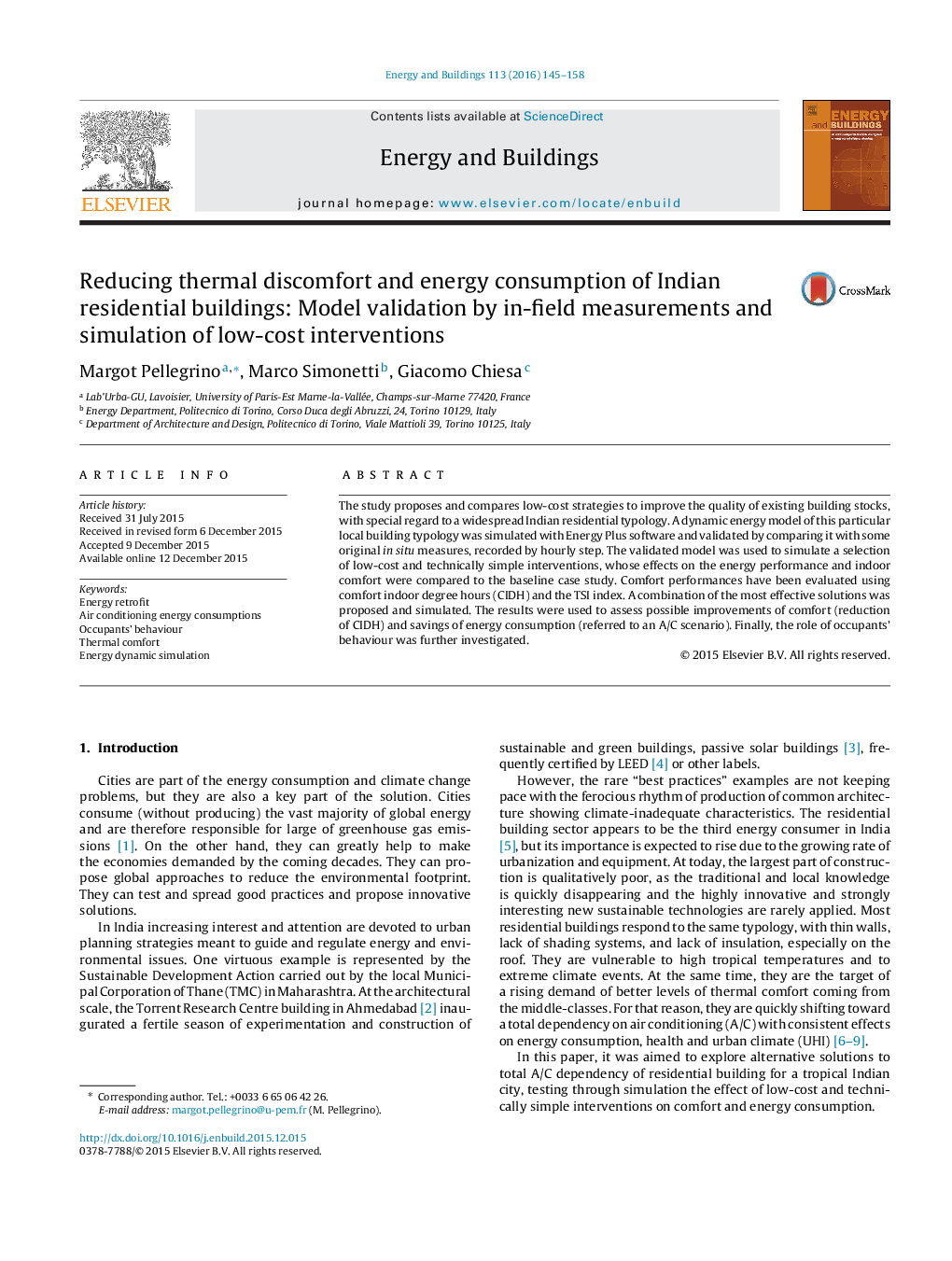| کد مقاله | کد نشریه | سال انتشار | مقاله انگلیسی | نسخه تمام متن |
|---|---|---|---|---|
| 262161 | 504013 | 2016 | 14 صفحه PDF | دانلود رایگان |
• Use of dynamic energy simulation tools for testing and evaluating low-cost solutions.
• Model validation within field measures.
• Thermal comfort in hot-humid climates using different approaches.
• Air-conditioning energy consumptions: how to avoid total dependency on A/C?
• Role of occupant behavior.
The study proposes and compares low-cost strategies to improve the quality of existing building stocks, with special regard to a widespread Indian residential typology. A dynamic energy model of this particular local building typology was simulated with Energy Plus software and validated by comparing it with some original in situ measures, recorded by hourly step. The validated model was used to simulate a selection of low-cost and technically simple interventions, whose effects on the energy performance and indoor comfort were compared to the baseline case study. Comfort performances have been evaluated using comfort indoor degree hours (CIDH) and the TSI index. A combination of the most effective solutions was proposed and simulated. The results were used to assess possible improvements of comfort (reduction of CIDH) and savings of energy consumption (referred to an A/C scenario). Finally, the role of occupants’ behaviour was further investigated.
Journal: Energy and Buildings - Volume 113, 1 February 2016, Pages 145–158
